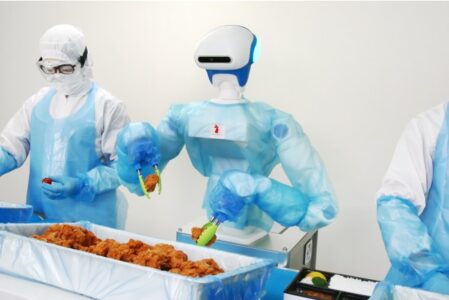How to make meat tastier? Unique sheet from Japan with fungi power
Japan has an old saying: “Meat is best when it’s going to rot”. Does your country have this kind of saying?
Of course, we can’t eat meat that has actually rotten. If you do, you’ll be in serious trouble! When we say “going to rot” here, we mean “aged/cured”.
Aged meat is meat undergoing moderate breakdown through the action of enzymes and microorganisms, giving it a distinctive flavour and aroma. Protein breaks down into amino acids, which give the meat its great umami flavour and tenderise the meat by breaking down the fibres. The same process also applies to fish.
Can Muslims eat aged meat?
As with any halal food, the aspects that you need to consider for halal meat are source, cleanliness and safety. Meat used for ageing must be from animals allowed by Islamic law slaughtered according to Islamic requirements (e.g. animals are not abused). The processing or preparation must also be free from any haram (prohibited) elements, such as pork or alcohol. The meat should be clean and safe for any people to eat.
If the ageing meat follows these criteria, Muslims can safely eat it.
Ageing meat does not simply mean you leave the meat or fish out in the open. Leaving it out will instead cause them to rot.
Until now, the key to ageing meat and fish is creating the right environment, such as using special ageing equipment. And if you do not age them under a strict control system, this can also compromise their food hygiene safety.
That is why aged meat and fish are expensive ingredients and are only available in fancy restaurants.
Around 2015, Japan had a huge boom in aged meat (dry-aged beef), mainly beef. Many major restaurant search sites picked it up as the trending keyword.
Then in 2017, Meat Epoch cooperated with Meiji University in an academia-industry project to research ways to make aged meat products more convenient and available for the public. This led them to develop the first ageing technology in Japan, the “Aging Sheet”, for safe and quick ageing. The “Aging Sheet” has also been patented (Patent No. 6671647). Since then, the company launched a crowdfunding project in Japan to commercialise the product for the general public. The project was highly successful in exceeding its target amount.
The Aging Sheet developed by Meat Epoch contains spores of harmless-to-humans bacteria suitable for ageing meat. The meat surface is coated with good bacteria when wrapping it with these spores, making it hard for the bad bacteria to attach onto it. So basically, you have GOOD bacteria blocking the BAD bacteria!
After wrapping the meat or fish with the sheet, wrap it again with food plastic wrap and leave it in the fridge for 5 days. This allows the bacteria to multiply until the meat or fish matures and is ready to eat.
Having meat or fish prepared in this way, you can deliciously taste a clear difference from what you have been eating before. The sheet has been gaining positive feedback and well-received by the users.
Also, it contributes to preventing food waste, as the bacteria prevents oxidation, thus prolonging the shelf life of meat and fish. What a fascinating and wondrous sheet!
Related Article:
Unique thing Japan do with snow, snow aging
We have a network of Japanese companies keen to expand into the Halal market in Malaysia & Indonesia.
If you are interested in connecting with sustainable technology companies in Japan, simply JOIN the network from below. We will match the right one for you!




